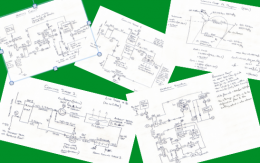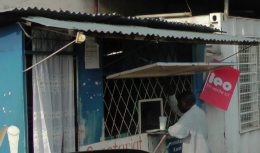 We have been looking at an initiative in Burundi to help transform communities through milk production. How does this work?
We have been looking at an initiative in Burundi to help transform communities through milk production. How does this work?
Processing
Once the milk arrives in the city it is received by yet another team of  young men who are employed to boil it. This kills potentially dangerous bacteria, particularly tuberculosis.
young men who are employed to boil it. This kills potentially dangerous bacteria, particularly tuberculosis.
Once boiled, the milk is sold at ‘rock bottom’ prices, either direct or to sellers. Some of these sellers take it into the slums which achieves the further benefit of making nutritious milk available for those in poverty, particularly children.
Expansion
This is a very exciting model! Not only does the business run at a profit but there are many social and ecological benefits
- health
- employment
- education
- improved soil which can be used for other crops
But this business has reached its capacity in this form. To benefit more people the business needs to expand, and this requires a change of approach.
Business Plan
To expand the business a full business plan is being developed to allow the pasteurisation to take place on a small industrial scale; this was one of the reasons for my visit.  A consultant is generously giving his time to design a suitable system using modern but easily maintained technology and others are making valuable contributions. All equipment will be solar-powered to ensure continuity of energy supply, a major challenge in Burundi.
A consultant is generously giving his time to design a suitable system using modern but easily maintained technology and others are making valuable contributions. All equipment will be solar-powered to ensure continuity of energy supply, a major challenge in Burundi.
Pasteurisation does not require the milk to be boiled, just raised to the low 70sC, so the new equipment will be more economical to run than the present charcoal fires. A higher nutritional value will also be retained.
Land, with a suitable building, has been identified which, together with the equipment, will be purchased as donor-funds become available. It is hoped to be able to launch this expanded business early in 2014.
 There will also be refrigerated transport to bring the milk from the rural areas; at present some deteriorates on the journey and cannot be processed. These vehicles will also be used to distribute the milk to the sellers, many of whom run milk bars in the slums.
There will also be refrigerated transport to bring the milk from the rural areas; at present some deteriorates on the journey and cannot be processed. These vehicles will also be used to distribute the milk to the sellers, many of whom run milk bars in the slums.
More capacity
There is a need for more pasteurising capacity in Burundi so the proposed plant will also treat milk from other sources; further income for the business, allowing prices to be kept low.
‘Milk to bring Transformation’ will not, of course, solve all of Burundi’s problems. However, I do believe that as this business develops and other food production programmes currently being considered are launched, God’s favour will become manifest among the people.
Future
Burundi is a nation in need. There are already churches there but much of the population is unreached. Many are working across the nation to share the gospel in word and deed. It is exciting to anticipate that the Newfrontiers family of churches can play a part in this Kingdom advance.
